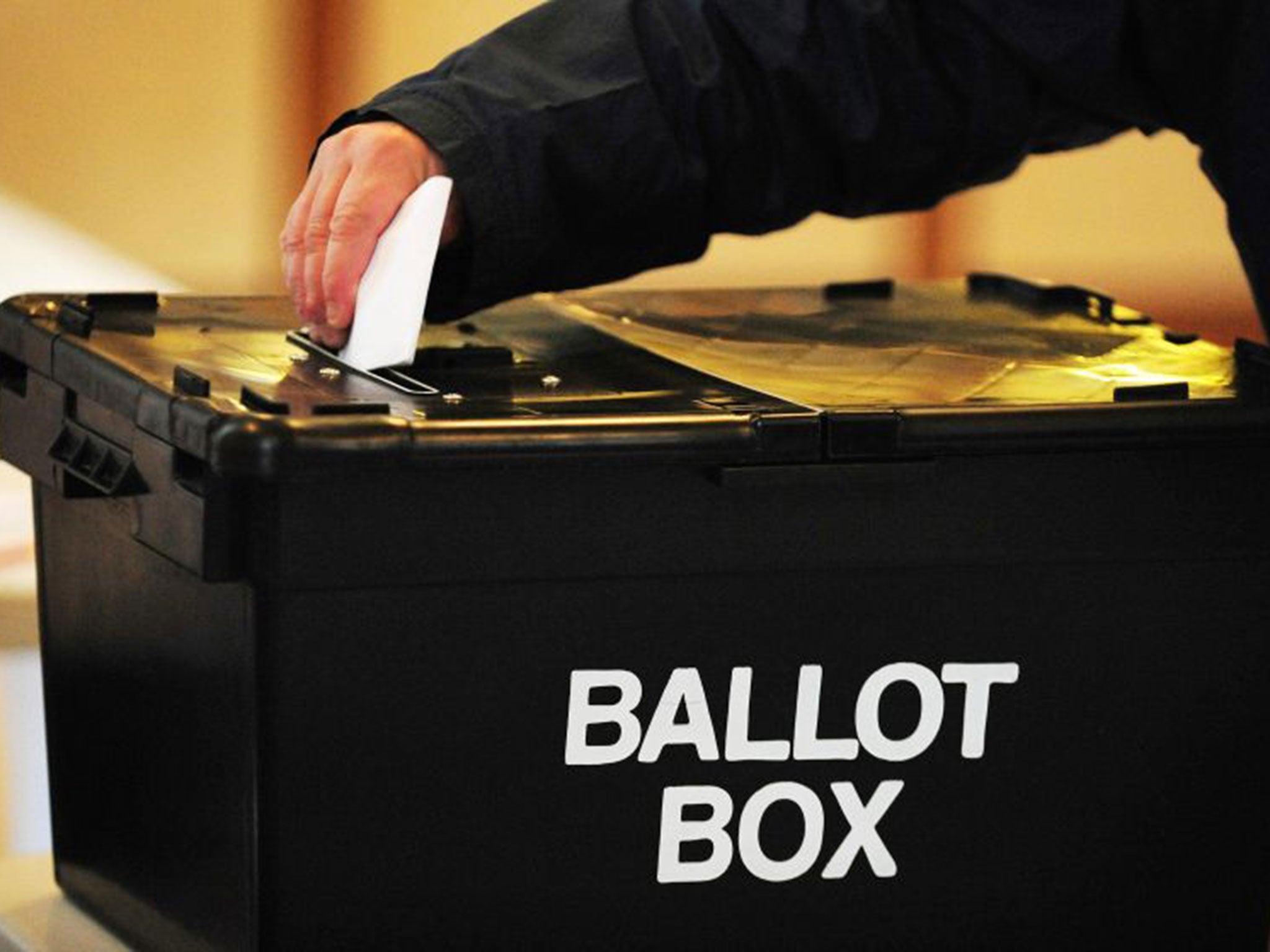Your support helps us to tell the story
From reproductive rights to climate change to Big Tech, The Independent is on the ground when the story is developing. Whether it's investigating the financials of Elon Musk's pro-Trump PAC or producing our latest documentary, 'The A Word', which shines a light on the American women fighting for reproductive rights, we know how important it is to parse out the facts from the messaging.
At such a critical moment in US history, we need reporters on the ground. Your donation allows us to keep sending journalists to speak to both sides of the story.
The Independent is trusted by Americans across the entire political spectrum. And unlike many other quality news outlets, we choose not to lock Americans out of our reporting and analysis with paywalls. We believe quality journalism should be available to everyone, paid for by those who can afford it.
Your support makes all the difference.Theresa May’s decision to go for an early general election can be described as a small-c conservative political gamble given her party’s massive lead in the opinion polls. But what could it mean for the economy? The answer is that it probably depends on the outcome of her gamble.
While the polls suggest there is very little chance of the Conservatives not being returned with a sizeable majority, there is always uncertainty involved in any vote – just look at last June’s referendum.
And Brexit remains a fiendish wildcard. Could angry Remainers seize this as a chance to strike back through tactical voting against hard-line Brexiteer MPs (something Labour and the Liberal Democrats hope)? It’s possible to imagine a configuration of regional results on the morning of 9 June that could encourage May into a more conciliatory position in the European Union divorce and trade negotiations.
Or could the outcome of the vote leave May so dominant in the House of Commons that she would be much less beholden to the hard Brexit wing of her party and the influential right-wing press than she has been thus far, and thereby liberated to take a more pragmatic negotiating line with the rest of the EU?
The fact that the general election after this one will now not fall until 2022 might be seen as leaving more breathing space for May to agree a post-2019 Brexit transition deal that is likely to anger the hard-liners if it continues with free movement and EU budget payments.
On the other hand, it’s possible that the election result could be interpreted as a surge of pro-Brexit enthusiasm from the country – giving a licence for May and the “three Brexiteers” in her Cabinet to swagger into the negotiating chamber with no thoughts of compromise and heedless of warnings from an anxious business sector about the perils of a “no deal” scenario.
Each of these outcomes could have implications for UK asset markets and the real economy in both the short and longer term.
The economy is more fragile than the most ideological of Brexiteers acknowledge. It is true that the UK’s headline growth figures have held up well since last June’s Brexit vote. GDP grew by 0.5 per cent in the third quarter of 2016 and accelerated to 0.7 per cent in the final three months of the year – despite widespread predictions in the City of London that the UK would fall into recession.
The latest forecast from the Bank of England and the Office for Budget Responsibility is for the economy to expand by 2 per cent in 2017 – decent by international standards. The triggering of Article 50 on 29 March was also digested without complaint by financial markets.
Yet there are signs of weakness in the more granular data. Business investment fell in 2016 for the first time since the financial crisis in 2009, something that is clearly related to the Brexit vote. Consumers have been the sole motor of growth since last June. But retail spending fell in the three months to February, registering the biggest decline in almost seven years. The household sector’s aggregate saving ratio (the gap between income and spending) collapsed to just 3.3 per cent in the final quarter of last year – the lowest on modern record and a ratio widely seen as unsustainable.
There seems little hope for support from rising real incomes. The deep fall in the pound since last June is set to take inflation back up to 3 per cent, while nominal wage growth is lacklustre, meaning the squeeze on living standards is back. Meanwhile, public sector austerity is far from over. Government spending cuts and tax rises are biting again, dragging on growth.
Sterling’s depreciation is not delivering an impressive boost to export volumes yet either – and the uncertainty of firms about future trade arrangements with their biggest continental customers may well impede the capital investment necessary to drive this structural improvement.
Some have suggested this early election represents Ms May's somewhat desperate attempt to get a mandate before the economic crunch hits and people look around for someone to blame.
The state’s official forecasters still expect a marked slowdown in GDP growth in 2018 and 2019. They believe the economic pain of the Brexit vote has been delayed, rather than avoided. May’s dramatic general election U-turn may bring the punishment forward again, or even soften the eventual blow. All we know for sure is that for the next six weeks the ratchet of economic uncertainty has clicked up another notch.


Join our commenting forum
Join thought-provoking conversations, follow other Independent readers and see their replies
0Comments